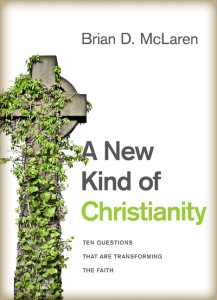
Since my writing this on Tuesday, Nigel has posted a new post on his blog. He has written to the Director of the Evangelical Alliance, pointing out the delays and the apparent unwillingness of the Trustees at Trinity to move towards either him or the Bible School student. I posted a comment suggesting that there may be a problem in appointing a Chairman, as per below. He responded with the thought that it is more likely to be indolence, which was my other suggested reason. Things may happen by next week-end as the terms of the internal Commission are due to be published by the end of January.
‘If you have a problem, ignore it and it may go away.’ This seems to be the conscious or unconscious motto that rules among the Trustees and members at Trinity Church Brentwood. After the flurry of activity that went on up to Christmas with the allegations of historic rape and some unprecedented admissions of failure on the part of the Trustees, including mention by them of a past ‘toxic culture’ in the church, all has now has gone quiet. We are still awaiting the nomination of an external chairman to oversee an internal enquiry over the historic wrongs at the church. This was something that was to be organised by the Evangelical Alliance. Such a person has not appeared. We are left wondering what is going on and even the indomitable Nigel Davies sounded discouraged. What is going on?
In the absence of official news from Trinity Church, we are free to speculate on what may be happening behind the scenes. My speculation are based on my experiences and study of the way that similar toxic religious groups behave. My surmises are speculative but if I am later proved wrong, I will freely withdraw my comments.
The problem of not yet finding an external chairman for the internal Commission is totally unsurprising. Michael Reid spent 30 or more years carefully rubbishing most other Christian institutions and their leaders, and now Trinity Brentwood, even under its supposed new management, does not have a good reputation with non-affiliated bodies. Few of the ‘friends’ and individuals that the church cultivated in the past have, as far as can be determined, blameless reputations. None of these ‘friends’ would anyway be eligible to act as an independent chairman. Is it surprising that getting involved as an independent chairman at a place like Trinity Church is not going to be immediately popular? Without of course knowing what is going on behind the scenes, I surmise that several people may have already turned down this ‘opportunity’. What would be in it for them? This is one situation that no amount of Trinity wealth and ‘love-gifts’ can resolve.
The dynamics of a church like Trinity Brentwood will always be resistant to meaningful reform. Churches that possess a narcissistic controlling leadership and a congregation that individually and collectively has long ago lost the ability to think or feel for itself, are virtually impossible to change. The particular aspect of Trinity, that makes it particularly hard to embrace the future, is the Reid legacy of members becoming married to one another and having children together. Peniel School was set up to keep these children carefully apart from the outside, free from exposure to influences outside the control of the church. The church has thus become the ultimate suffocating family. There are many comparable religious groups, particularly in the States, where members all live together and marry one another. The fate of the children in this situation is often tragic in the extreme. Having been brought by emotionally immature parents, educated apart from children their own age, these children have a hard struggle to make their way through life. In the States there is a literature devoted to the needs of so-called SGAs (second generation adults) in closed communities. Meanwhile the parents, these inter-married immature adults, find it extremely difficult to think for themselves having handed over the thinking process on big issues to their leaders. They thus cannot easily break out of the cocoon. What sort of maturity are they handing on to their children, if their membership of a toxic group has prevented them from ever growing up and maturing themselves?
Nigel’s blog revealed that some Trinity members thought that with the setting up of the Commission, the crisis was over. Those of us who have read all the material both from the church and the bloggers (especially the moving testimony from the Bible Student) know perfectly well that nothing has yet been resolved. What can we can say about an individual who, because nothing has been said in the church for five weeks, believes that everything is sorted? Various words come to mind to describe the attitude of an individual who believes that because something is not mentioned for a time, it has gone away. Some adjectives would describe an apparent lack in their intelligence. Other adjectives would denote that the individual concerned cannot face up to any reality as the result of severe conditioning. Dissonance is not easily tolerated. If the leadership tell them that all is well, then they will be quick to believe it. Anything else is uncomfortable; thinking through problems on their own is something that members of a toxic group normally do not have to do. As with children, they have always have had ‘Daddy’ to do their thinking for them.
Stalemate is going to be a typical scenario when a closed religious group decides to investigate itself. It is my firm belief that internal enquiries will never succeed because no one involved in a such a group can ever stand outside the established habits of thought long enough to see what is going on. Also the privileged leaders of a closed group will always make sure they remain materially comfortable and, in defence of that privilege, they will obstruct investigation with every power game known to man. In partial defence of these same leaders, I actually believe that most such leaders believe at least some of their own excuses and rhetoric. Like President Assad of Syria, they are convinced that they are the victims of ‘terrorists’, past and present. Without his guiding hand, the toxic group leader recognises that everything built up over the years would simply collapse. Any change would bring the whole house of cards come tumbling down because there is no one to manage the intricate network of relationships and dependencies that have been created to keep the whole thing going.
For all the effort, sacrifice and pain among members past and present, a closed religious group like Trinity will eventually collapse in tears. The high-level of intermarriage at Trinity means that no one outside the ‘tribe’ will ever easily be able to manage the dynamics of the place and successfully lead it in the future when the present leadership is gone. One could just imagine that, had the Commission sparked a sincere desire to put things right, there was a hope for the future. That spark of hope seems to have died as a result of the deafening silence that has descended on Trinity since Christmas. We wait to see what will happen next.





